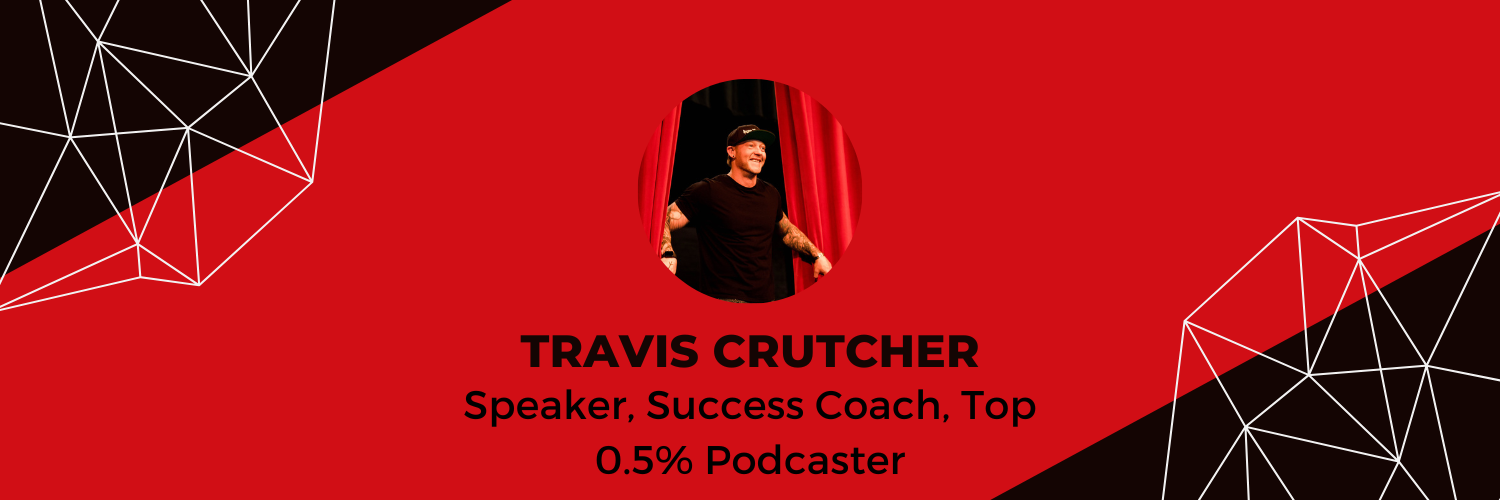Stop Recording Your Breakdown and Start Recording Your Comeback
The brutal truth about emotional outbursts and why they're sabotaging your success
I posted something recently that got people fired up: "If you record yourself crying and put it on the internet, I hope whatever you're going through gets worse."
Harsh? Maybe. True? Absolutely.
Here's the thing - I'm not heartless. Life hits hard, and we all face moments that knock us flat. But there's a massive difference between processing your emotions privately and turning your breakdown into content for strangers on the internet.
When you record yourself in your lowest moment and broadcast it to the world, you're not being "authentic" or "vulnerable." You're being strategically weak. And weakness shared publicly doesn't magically transform into strength - it transforms into a habit.
The Real Problem with Emotional Broadcasting
Every second you spend recording your tears is a second you're not spending solving the problem that made you cry in the first place.
Think about it: You're in crisis mode, your brain is flooded with stress hormones, and instead of channeling that energy into action, you're... making content? You're literally choosing to document your defeat instead of engineering your victory.
This isn't about suppressing emotions or pretending everything's fine. This is about understanding that your lowest moments require your highest focus - not your phone's camera.
What That Raw Emotion Is Actually For
That surge of anger, frustration, or devastation you're feeling? That's not content material. That's rocket fuel.
Your body is literally flooding you with chemicals designed to help you fight, flee, or figure sh*t out. But when you redirect that energy into performing your pain for an audience, you're wasting the very resource that could propel you forward.
Raw emotion is nature's way of saying: "This situation is unacceptable. Change it. Now."
Five Strategies to Harness Your Breakdown Energy
1. The Emergency Action Protocol
When you feel that overwhelming urge to document your crisis, do this instead:
Set a timer for 10 minutes
Write down exactly what happened and why it's unacceptable
List three immediate actions you can take right now
Pick one and do it before the timer goes off
Your energy goes into solutions, not sympathy-seeking.
2. The Rage Channel Method
That anger? Don't suppress it - redirect it.
Hit the gym and destroy a workout
Clean your entire living space like your life depends on it
Tackle the hardest task on your to-do list
Make the phone call you've been avoiding
Channel that intensity into something that moves you forward, not something that keeps you stuck in victim mode.
3. The Strategic Brain Dump
Instead of crying into your camera, cry into your notebook:
Write everything you're feeling without censoring yourself
Get every toxic thought out of your head and onto paper
Then burn it, shred it, or delete it
Now write your comeback plan
This purges the emotional poison without broadcasting it to people who can't help you anyway.
4. The 24-Hour Rule
Before you share anything emotional online, wait 24 hours and ask yourself:
Will this help me or hurt me tomorrow?
Am I seeking solutions or sympathy?
Would I want my biggest opportunity to see this?
If you still want to share after 24 hours, at least you're making a strategic choice, not an emotional one.
5. The Accountability Pivot
Instead of broadcasting your breakdown, broadcast your comeback plan:
"I'm facing X challenge and here's my strategy to overcome it"
"This setback taught me Y, and here's what I'm doing differently"
"I'm committing to Z actions over the next 30 days"
Now you're using social media to create accountability, not to fish for validation.
The Hard Truth About Sympathy
Here's what nobody wants to tell you: The people who comment "sending love" and "you've got this" on your crying videos aren't going to pay your bills, fix your relationship, or solve your problems.
Sympathy feels good for about five minutes. Then you're right back where you started, except now you've trained your brain that broadcasting weakness gets you attention.
That's a dangerous f*cking pattern.
What Winners Do Instead
Winners don't hide their struggles - they weaponize them.
They use their lowest moments as intelligence gathering. They ask: "What led to this? What can I control? What do I need to change?"
They understand that every breakdown is data. Every crisis is feedback. Every moment of overwhelming emotion is your internal system screaming that something needs to change.
But they process that data privately, strategically, and with the sole purpose of ensuring it never happens again.
Your Emotional Maturity Test
Next time you're tempted to document your breakdown, ask yourself:
"Am I trying to solve this problem, or am I trying to get people to feel sorry for me?"
Be honest. Because one path leads to growth, and the other leads to more of the same sh*t that got you here in the first place.
Your emotions are powerful. Your energy is finite. Your attention is valuable.
Stop wasting all three on an audience that can't actually help you.
Channel that raw intensity into the work that will ensure you never have to feel this way about this situation again.
That's not being heartless. That's being strategic.
And strategy wins every single time.

